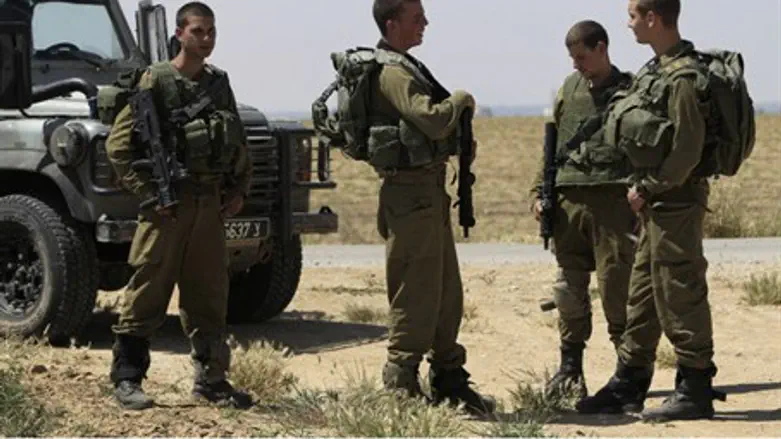
The IDF has revealed the list of basic necessities upon which IDF soldiers’ pay has been based for nearly three decades. Lawyers in the case say the outdated list proves soldiers are underpaid, as even the basics as described in 1986 now cost four times the minimum IDF salary.
The list puts goods into four categories: “hygiene and cleaning,” “food and drink,” “writing materials,” and “various.” At the time the list was created, the goods in question cost an estimated 72 shekels per month.
In 2002, the sum was updated to 352 shekels a month. However, it has not been updated since – and lawyers in the case say the list of basics would cost 1,241 shekels each month in 2013.
The list was exposed at the request of attorneys Amnon Lorch, Anar Hefetz and Roni Bachman. The attorneys have been dealing with an appeal to the Supreme Court for over a year in an attempt to force IDF Chief of Staff Benny Gantz, Defense Minister Moshe Yaalon, Finance Minister Yair Lapid and the Israeli Knesset to update IDF soldiers’ salaries.
The 1986 list was found to include laundry soap, deodorant, soap and toothpaste under “hygiene.” The “food and drink” category included several sweet snacks such as cookies, candies, chocolate and juice.
The “writing materials” section was created in the days before widespread use of mobile phones. It states that each soldier should be given enough money to buy 10 envelopes, stamps, and paper and a pen each month, in order to keep in touch with friends and relatives at home.
In addition, soldiers should be given enough money for 12 regular bus rides and two inter-city rides, cigarettes, five packages of matches, and four movies, the list determined. Soldiers were also to be given an extra 2.8 shekels for “Sabbath maintenance.”
The attorneys who filed the case argue that the IDF has avoided raising soldiers’ salaries for years, and that soldiers are significantly underpaid in 2013 terms, based on both the cost of basic goods and the current average wage and minimum wage.
In April 2013, shortly after coming into office, Defense Minister Yaalon ordered that soldiers’ pay be increased by 21% beginning in January 2014. Beginning then, non-combat soldiers will earn 426 shekels per month in place of 352, and combat soldiers will earn 847 shekels per month in place of 700.